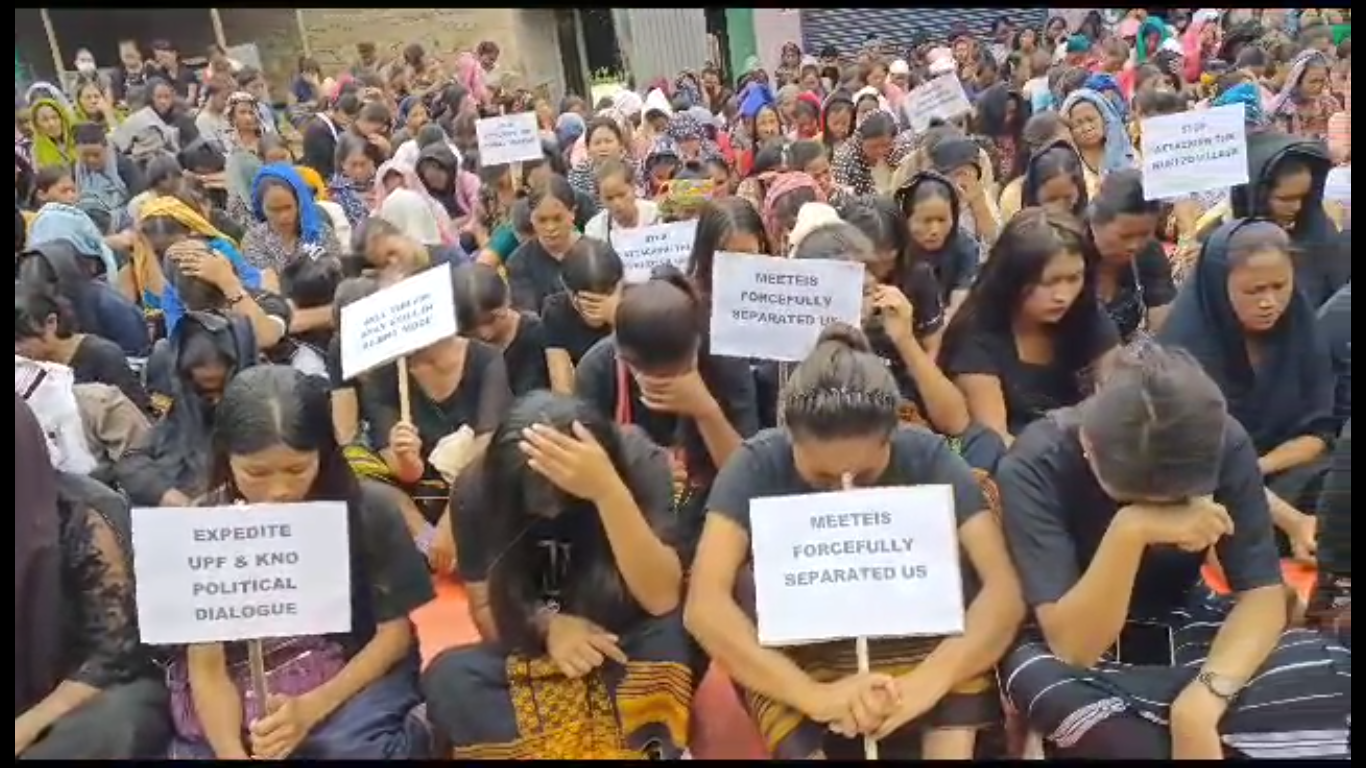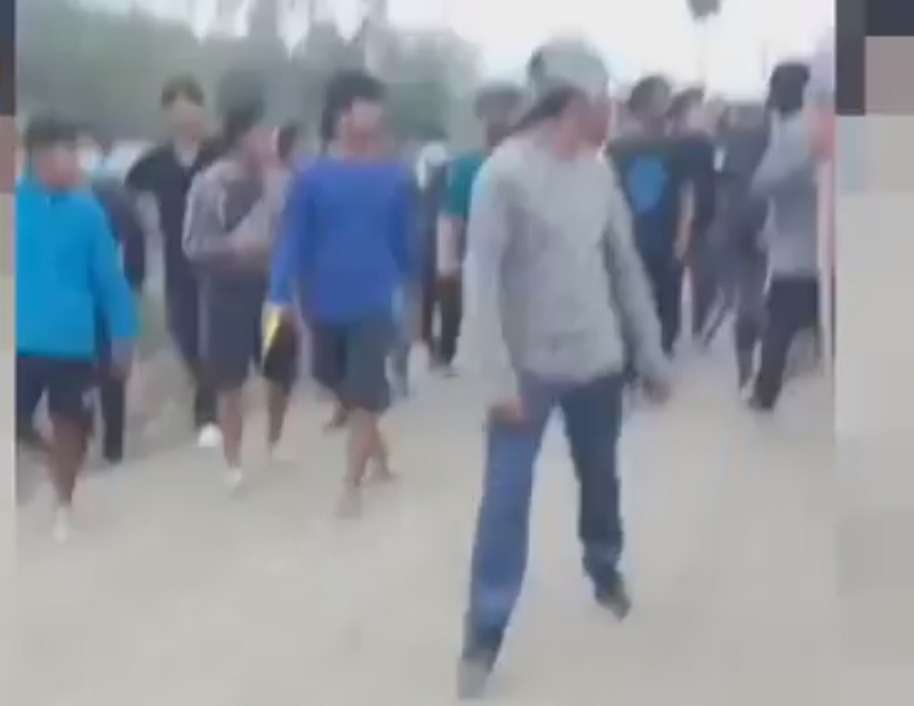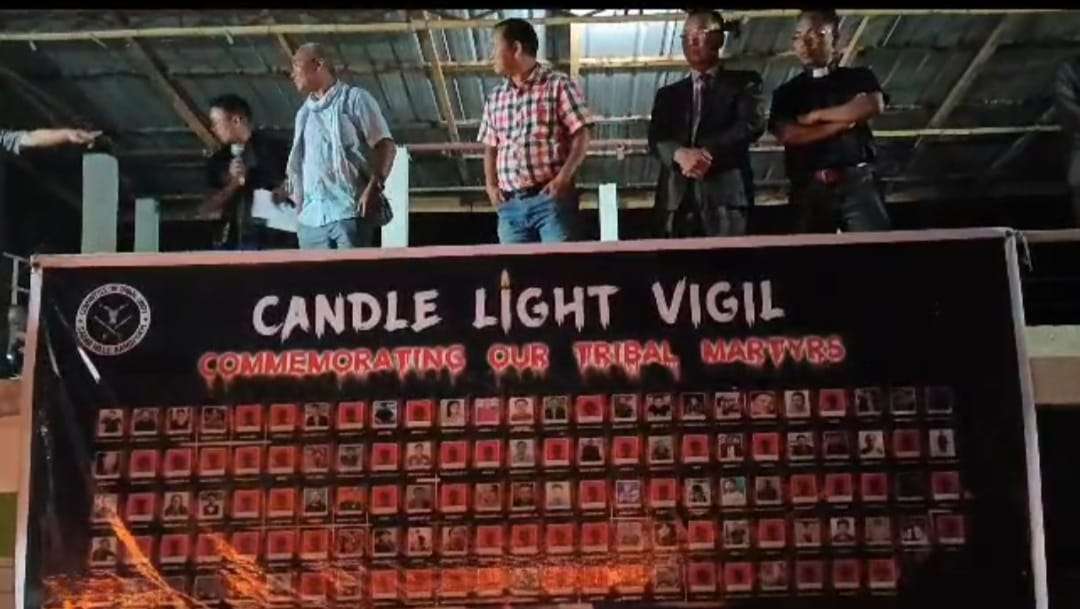–Deepak Singh
In the remote northeastern state of Manipur, a harrowing tale of ethnic cleansing and political failure unfolds, bearing eerie resemblances to some of history’s darkest chapters. The Kuki-Zo tribe finds itself in the throes of a nightmare akin to the genocides witnessed in Rwanda and Bosnia, sparking global concern. Once again, ethnicity has become the catalyst for a reign of terror, while the Manipur Police, entrusted with protecting its citizens, seemingly remain passive bystanders to the unfolding carnage.
The echoes of past atrocities send a chilling message as to why history is repeating itself. Manipur, with its rich cultural diversity and history, should have been a tapestry of harmony and coexistence. Instead, Meitei extremist groups have plunged the region into an unending cycle of violence, subjecting the Kuki community to targeted attacks for nearly 80 days.

Reports of terror and despair mirror the horrors witnessed in Rwanda and Bosnia. Innocent lives are lost merely due to identity cards and physical features, hauntingly familiar to past genocides. The Manipur Police’s inaction, akin to the failures of law enforcement during previous atrocities, adds to the sense of déjà vu.
The heart-wrenching incident on May 4, 2023, where two women were brutally assaulted, molested, paraded naked and gang-raped, and their father and brother murdered before their eyes, epitomizes the state’s failure to protect its citizens. Shockingly, the Manipur Police reportedly stood by as Meitei mobs dragged the victims away from the safety of a security force vehicle. This lack of accountability at the highest levels of power echoes the political apathy witnessed during previous genocides.

The continued presence of Chief Minister N Biren Singh despite the state’s descent into chaos and violence sends a troubling message. Is “Might is Right” and “Majority is the New World Order” the prevailing law in Manipur’s governance? The silence from the central government, led by Prime Minister Narendra Modi, further exacerbates the feeling of historical repetition, where political leaders appear impervious to their people’s suffering.
However, the complexity of this crisis necessitates a nuanced understanding of the underlying issues faced by all communities involved as it is essential to also consider the perspective of the Meitei community as well. Manipur has long grappled with historical grievances and identity-based tensions between various ethnic groups, including the Kuki-Zo and Meitei communities. The valley dwelling Meitei community has expressed concerns over land disputes, political representation, and opportunities in the hilly districts, which are occupied by the tribals including Kuki and Nagas, which astonishingly make up to 90% of the state’s geography, which have contributed to the escalating tensions.

To address the situation effectively, promoting dialogue and reconciliation between different ethnic groups is crucial. Open channels of communication can foster mutual understanding, empathy, and trust, thereby reducing the chances of violence and fostering a shared vision of a united and inclusive Manipur.
Moreover, the state and central governments must invest in robust law enforcement training and equip the police force to handle sensitive situations impartially. Strengthening the rule of law and ensuring accountability for any acts of violence is crucial in restoring faith in the government’s ability to protect all citizens, irrespective of their ethnicity.

On the economic front, the government should prioritize initiatives that promote inclusive development and provide opportunities for marginalized communities, including both Kuki-Zo and Meitei, to thrive. Economic empowerment can serve as a powerful tool in mitigating tensions and promoting social cohesion.
The international community must not stand idly by as this tragedy unfolds. It is imperative to demonstrate that humanity has learned from its past mistakes and is committed to preventing such atrocities from reoccurring. Diplomatic pressure, targeted sanctions, and humanitarian intervention are urgently required to bring the perpetrators of these crimes to justice and protect the vulnerable Kuki-Zo tribe.

Manipur serves as a stark reminder that complacency and political indifference can pave the way for the darkest impulses of humanity to resurface. A comprehensive approach is needed to understand the underlying complexities unique to Manipur’s crisis. We must not let history repeat itself; instead, we must be the driving force that brings an end to this cycle of violence and ensures that innocent lives lost in Rwanda, Bosnia, and now Manipur have not been in vain. Together, let us stand as a beacon of hope and change, proving that humanity can learn from its past and build a better, more compassionate world. The time to act is now.
Also read: Manipur viral video case: One more arrested, tally rises to five
WATCH:
Find latest news from every corner of Northeast India at hubnetwork.in, your online source for breaking news, video coverage.
Also, Follow us on-
Twitter-twitter.com/nemediahub
Youtube channel- www.youtube.com/@NortheastMediaHub2020
Instagram- www.instagram.com/nemediahub





